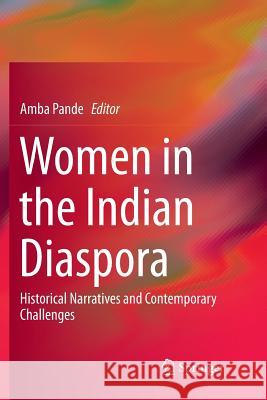Women in the Indian Diaspora: Historical Narratives and Contemporary Challenges » książka
topmenu
Women in the Indian Diaspora: Historical Narratives and Contemporary Challenges
ISBN-13: 9789811355325 / Angielski / Miękka / 2019 / 200 str.
Kategorie:
Kategorie BISAC:
Wydawca:
Springer
Język:
Angielski
ISBN-13:
9789811355325
Rok wydania:
2019
Wydanie:
Softcover Repri
Ilość stron:
200
Waga:
0.31 kg
Wymiary:
23.39 x 15.6 x 1.17
Oprawa:
Miękka
Wolumenów:
01
Dodatkowe informacje:
Wydanie ilustrowane











